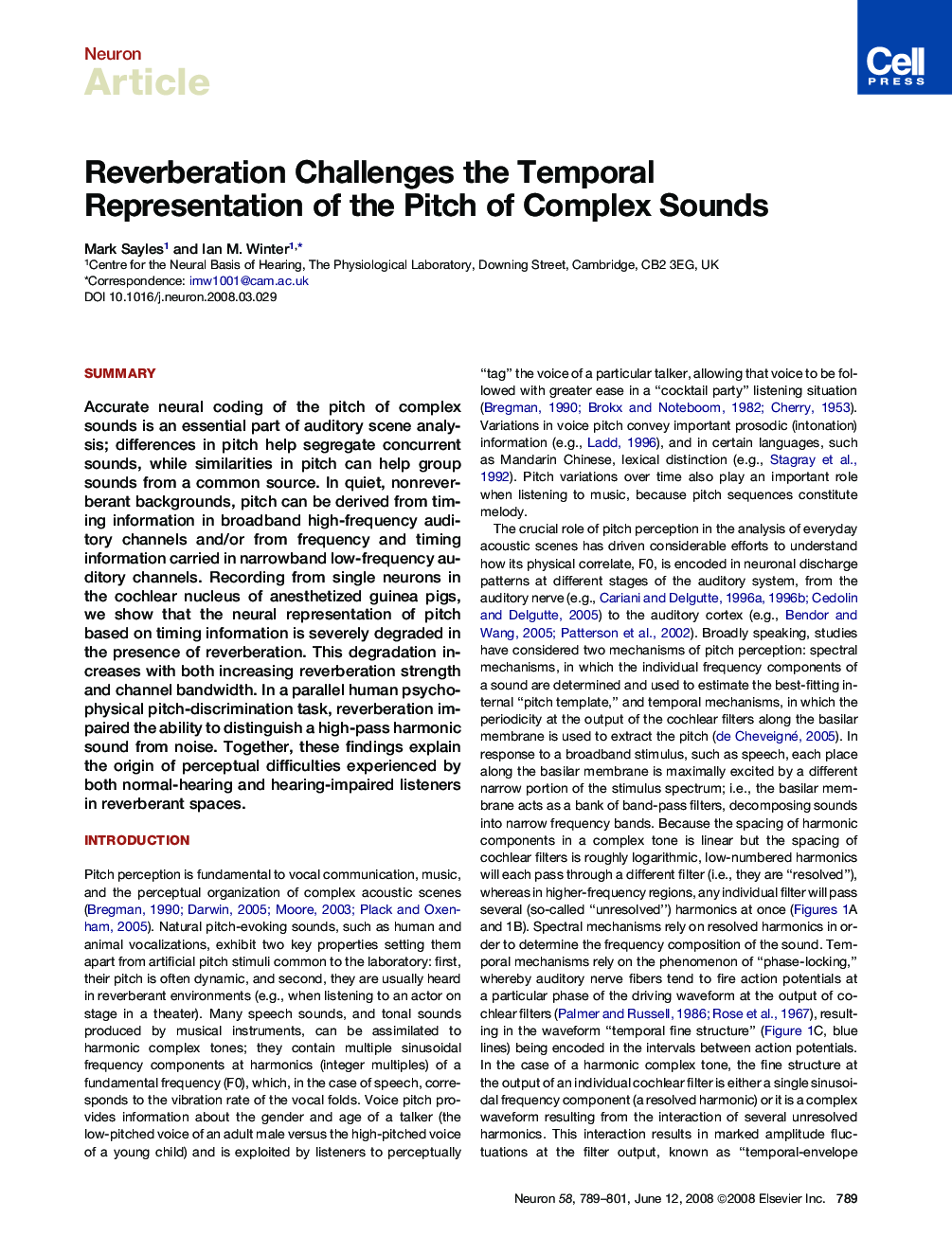| Article ID | Journal | Published Year | Pages | File Type |
|---|---|---|---|---|
| 4323178 | Neuron | 2008 | 13 Pages |
SummaryAccurate neural coding of the pitch of complex sounds is an essential part of auditory scene analysis; differences in pitch help segregate concurrent sounds, while similarities in pitch can help group sounds from a common source. In quiet, nonreverberant backgrounds, pitch can be derived from timing information in broadband high-frequency auditory channels and/or from frequency and timing information carried in narrowband low-frequency auditory channels. Recording from single neurons in the cochlear nucleus of anesthetized guinea pigs, we show that the neural representation of pitch based on timing information is severely degraded in the presence of reverberation. This degradation increases with both increasing reverberation strength and channel bandwidth. In a parallel human psychophysical pitch-discrimination task, reverberation impaired the ability to distinguish a high-pass harmonic sound from noise. Together, these findings explain the origin of perceptual difficulties experienced by both normal-hearing and hearing-impaired listeners in reverberant spaces.
